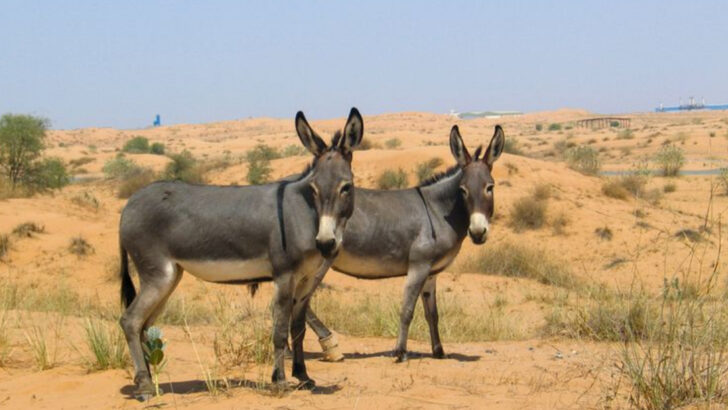Donkeys get no respect—and it’s a crying shame. These animals are way more than stubborn pack-mules. They’re clever, emotional, fiercely loyal, and full of surprises. Some have accents. Some remember friends after decades apart. And some? They’ve helped shape entire civilizations. Forget everything you thought you knew. These aren’t your average barnyard brayers. These are the weirdest, wildest, most fascinating donkey facts hiding in plain sight—and you’re about to see them in a whole new light.
Desert Survivors
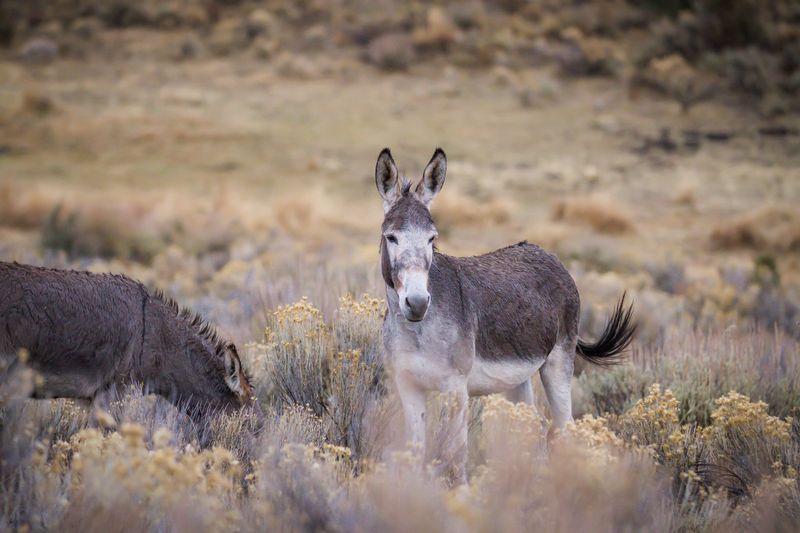
In the midst of the harsh desert landscape, wild donkeys have honed the art of survival. These tenacious creatures are equipped with an incredible ability to withstand arid environments. Withstanding extreme temperatures and limited water resources, they manage to thrive where others falter.
Their diet is equally adaptable. Feeding on tough shrubs and grasses, they extract every ounce of moisture available. This remarkable resilience is a testament to their evolutionary success. Did you know that wild donkeys can go without water for several days? Their endurance is truly an evolutionary marvel.
Incredible Intelligence
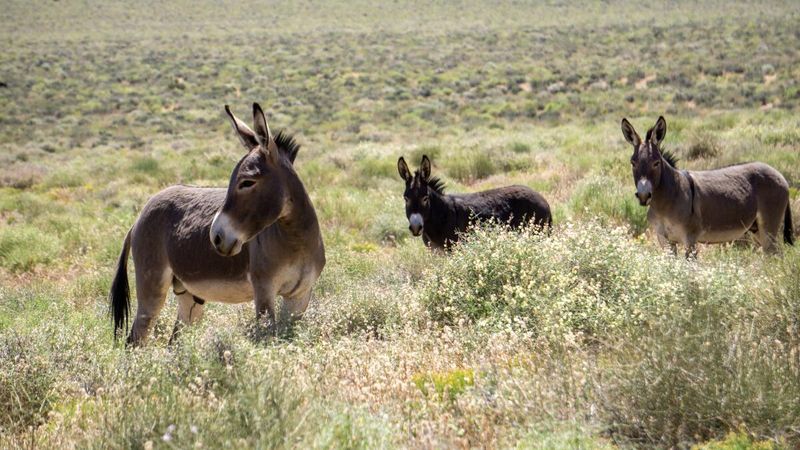
Wild donkeys are not just hardy; they’re incredibly intelligent too. Their cognitive abilities are often underestimated, yet they display remarkable problem-solving skills. Observations have shown them using tools to aid in survival, such as breaking open branches to access food.
This intelligence extends to their social interactions. Donkeys form strong bonds with one another, communicating through a series of vocalizations and body language. Such sophisticated behaviors underline their complex emotional lives. Next time you think of donkeys, remember they’re not just beasts of burden but thinkers in their own right.
Unique Vocalizations
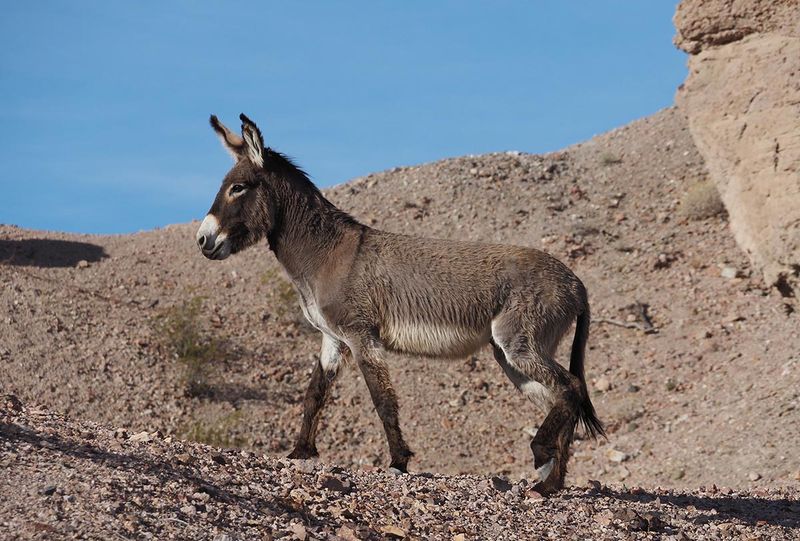
Have you ever heard a donkey’s bray echo across the desert? It’s more than just noise; it’s a sophisticated form of communication. Each bray is unique, allowing donkeys to identify each other even from miles away. This vocal range is essential for maintaining social bonds within their herd.
The bray is not the only sound they make. Donkeys also use whinnies, growls, and snorts to convey various emotions and signals. This diverse vocal repertoire is a testament to their complex social structure and intelligence. Listening to wild donkeys, one truly hears the language of the desert.
Historical Companions
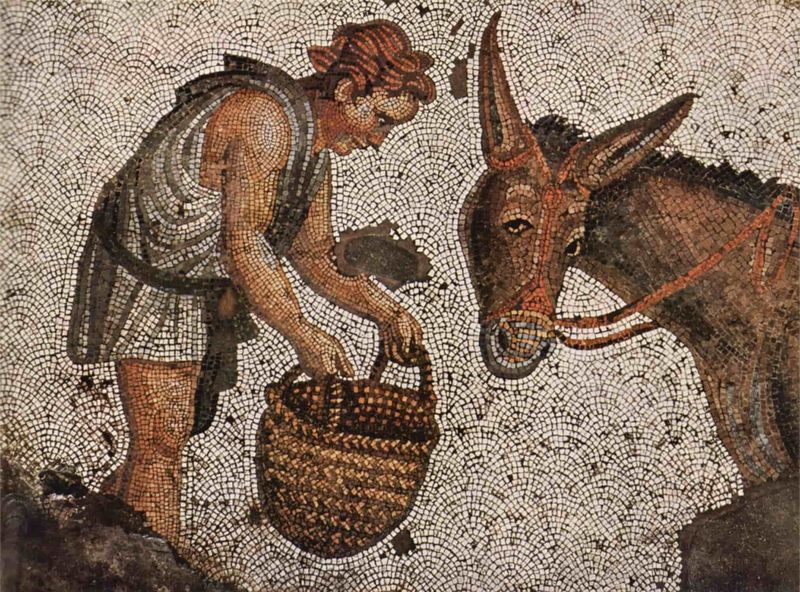
Throughout history, donkeys have been steadfast companions to humans. In ancient Egypt and Mesopotamia, they were prized for their strength and endurance, playing crucial roles in agriculture and transport. Their image adorned tombs and temples, symbolizing wealth and power.
These historical bonds have shaped human civilization in ways we often overlook. They were not merely tools but allies in the development of early societies. A glance at ancient artifacts reveals the profound relationship between humans and donkeys, a bond that has stood the test of time.
Social Creatures
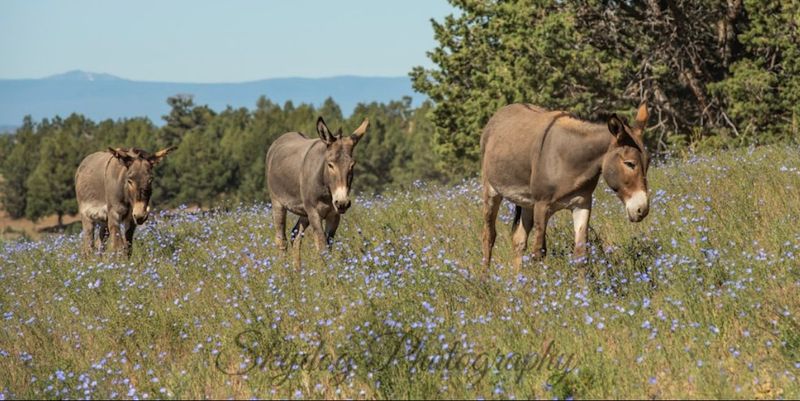
In the wild, donkeys are highly social animals. They form tight-knit groups, often seen playfully interacting with one another. This social nature is crucial for their survival, as they rely on group dynamics for protection and foraging.
Within these groups, donkeys establish hierarchies and relationships, showcasing a complex social structure. It’s not uncommon to witness acts of affection and cooperation among them. Their social bonds are not just for survival, but also for companionship and emotional support. The wild donkey’s social life is a vibrant tapestry of connections and interactions.
Adaptable Grazers
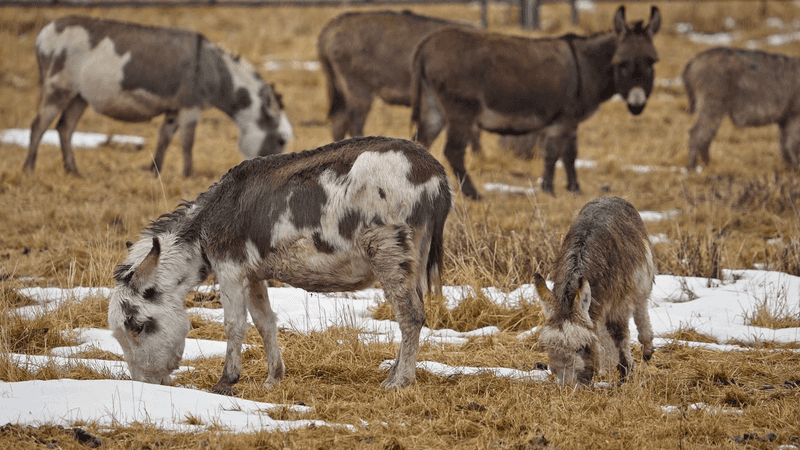
Wild donkeys are the epitome of dietary adaptability. As grazers, they consume a wide variety of plant species, allowing them to thrive in diverse environments. From the sparse vegetation of deserts to the lush greenery of savannas, they adapt their diet to what nature offers.
This adaptability is key to their survival, especially in habitats where food is scarce. Their digestive systems are remarkably efficient, extracting maximum nutrients from fibrous plants. Donkeys have mastered the art of making the most out of what’s available, a skill that ensures their resilience in the wild.
Remarkable Memory
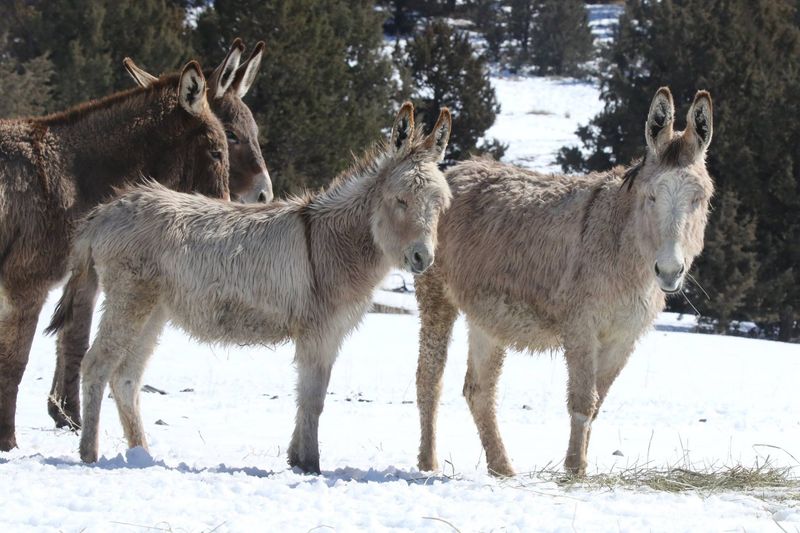
It’s said that elephants never forget, but donkeys might give them a run for their money. Wild donkeys possess an extraordinary memory, especially when it comes to locations and terrain. They can recall the best water sources and grazing spots, even if seasons have passed.
This keen sense of memory aids in their navigation across vast landscapes. It also plays a role in their social interactions, as they recognize individual herd members and past encounters. The remarkable memory of donkeys is a vital tool for survival, ensuring they find sustenance and maintain social bonds.
Strong Sense of Smell
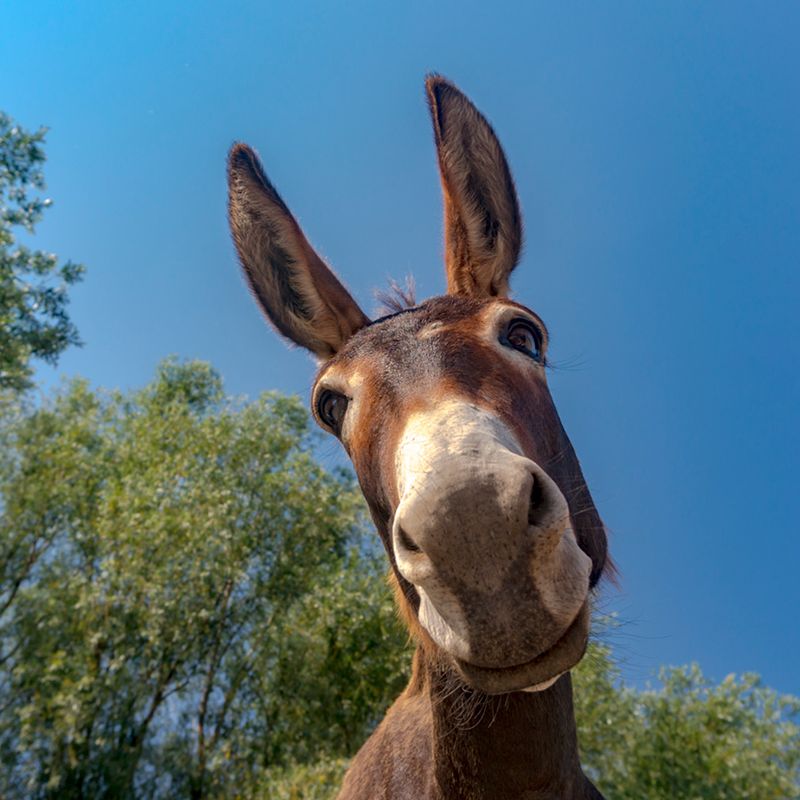
The keen nose of a wild donkey is truly impressive. Their strong sense of smell plays a critical role in locating food and water across expansive territories. This ability is particularly advantageous in arid environments where resources are scarce.
Beyond survival, their olfactory skills help in recognizing other donkeys and potential threats. This sense of smell is a communication tool, aiding in social interactions within their herd. It’s fascinating to consider how their olfactory world is filled with scents that guide their actions and decisions.
Natural Nomads
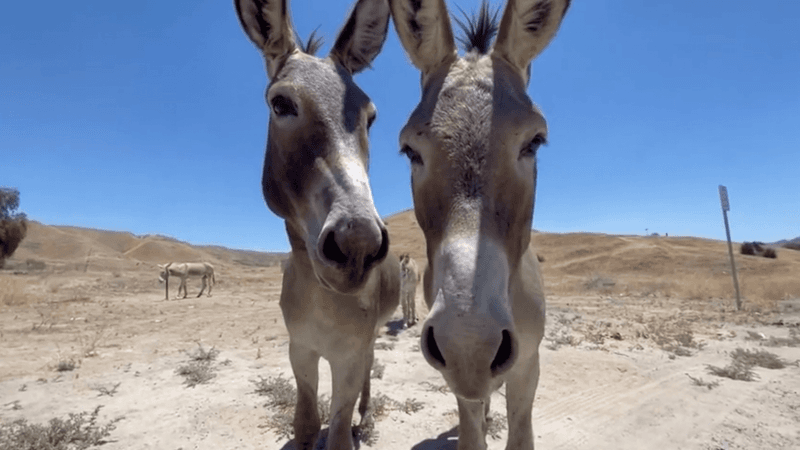
Wild donkeys embody the spirit of nomadic wanderers, constantly on the move in search of food and water. Their migratory patterns are dictated by the availability of resources, leading them across diverse terrains and climates.
This nomadic lifestyle is crucial for their survival, allowing them to exploit different habitats and avoid resource depletion. Their adaptability to various environments is a testament to their resilience. Watching a herd of donkeys traverse the landscape is like witnessing a dance with nature, each step driven by necessity and instinct.
Enduring Strength
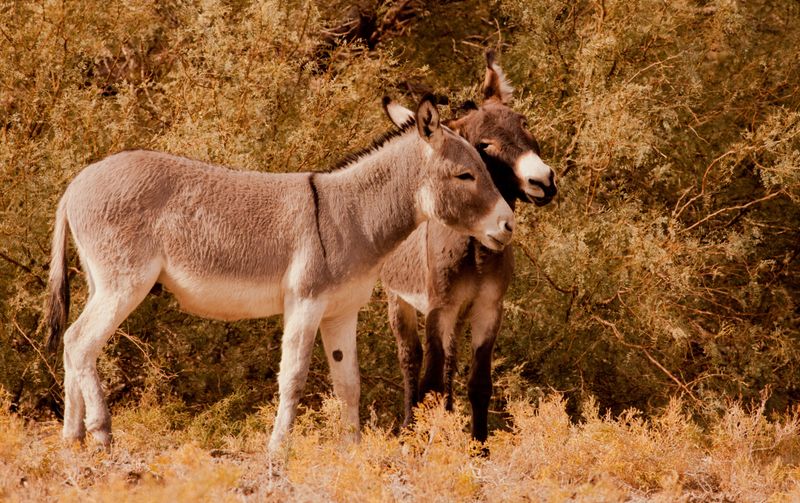
The strength of a wild donkey is legendary, dating back to ancient times when they were relied upon as beasts of burden. This enduring strength is a result of their sturdy build and muscular frame, enabling them to carry heavy loads and navigate rugged terrain.
In the wild, their strength ensures their survival, as they can travel long distances in search of resources. Their physical prowess is complemented by an inner tenacity, a combination that has made them indispensable to humans throughout history. Donkeys exemplify strength in every sense of the word.
Diverse Habitats
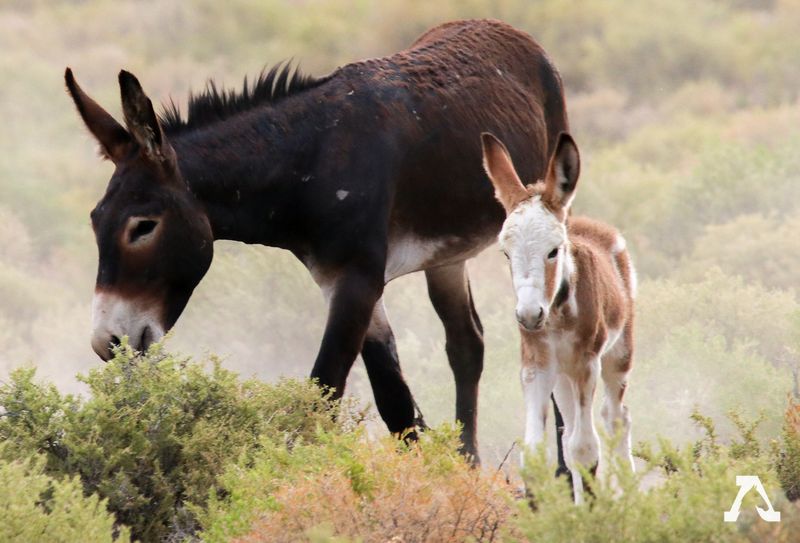
Wild donkeys are true cosmopolitans of the animal kingdom, thriving in a variety of habitats. From deserts to mountains, and savannas to grasslands, their adaptability to diverse environments is remarkable.
This versatility is key to their survival, as they can exploit different ecological niches. Their ability to find sustenance in harsh conditions reflects their evolutionary success. Understanding the diverse habitats of wild donkeys offers insight into their resilience and the ecological roles they play. Their presence enriches ecosystems across the globe.
Ancient Symbols
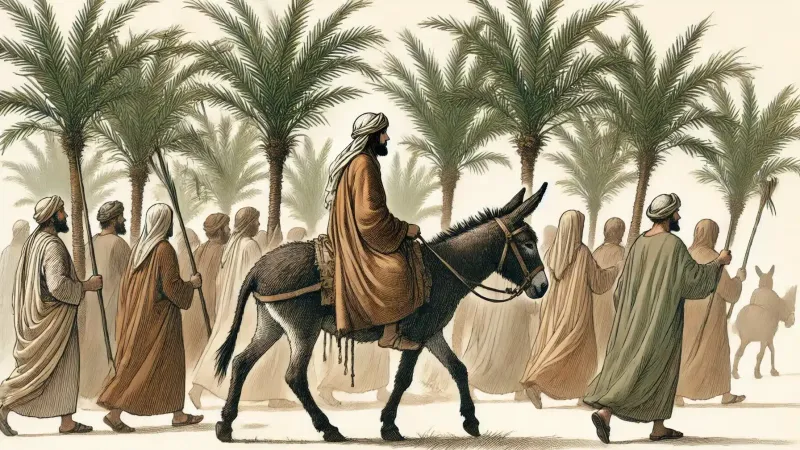
Donkeys have long been symbols of various cultural and religious beliefs. In ancient civilizations, they were often depicted in art and literature, representing everything from humility to wealth.
Their symbolic significance is evident in historical texts and artifacts. In Christianity, the donkey is associated with peace and service, while in Egyptian mythology, it symbolizes fertility and protection. These enduring symbols reflect the deep connection between donkeys and human culture, transcending time and geography.
Exploring the symbolic roles of donkeys offers insight into their historical importance and cultural legacy.
Efficient Digestive System
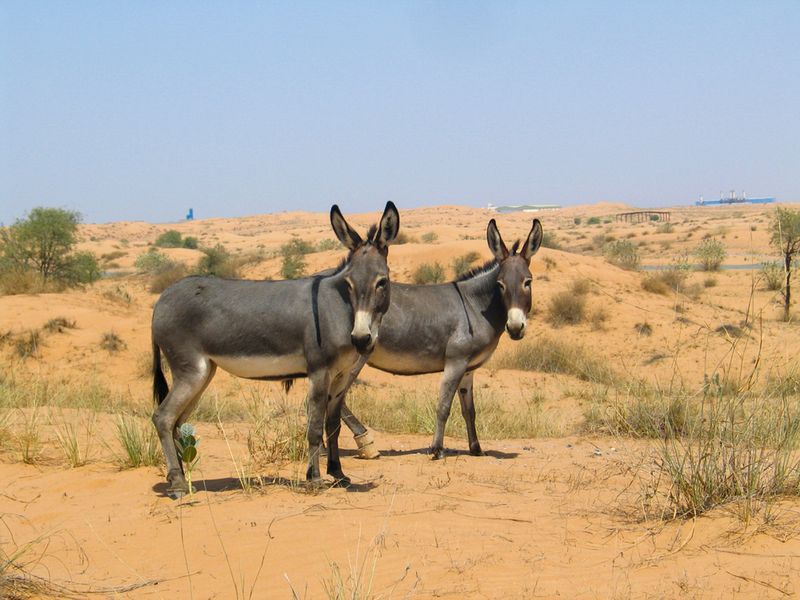
A wild donkey’s digestive system is a marvel of efficiency, perfectly adapted to processing tough, fibrous plants. Their ability to extract maximum nutrients from minimal food sources is key to their survival in harsh environments.
This digestive prowess allows them to thrive where other animals might struggle. It also contributes to their ecological role, as they help in seed dispersion and vegetation management. Understanding the intricacies of their digestive system provides insight into their adaptability and resilience.
Vocal Personalities
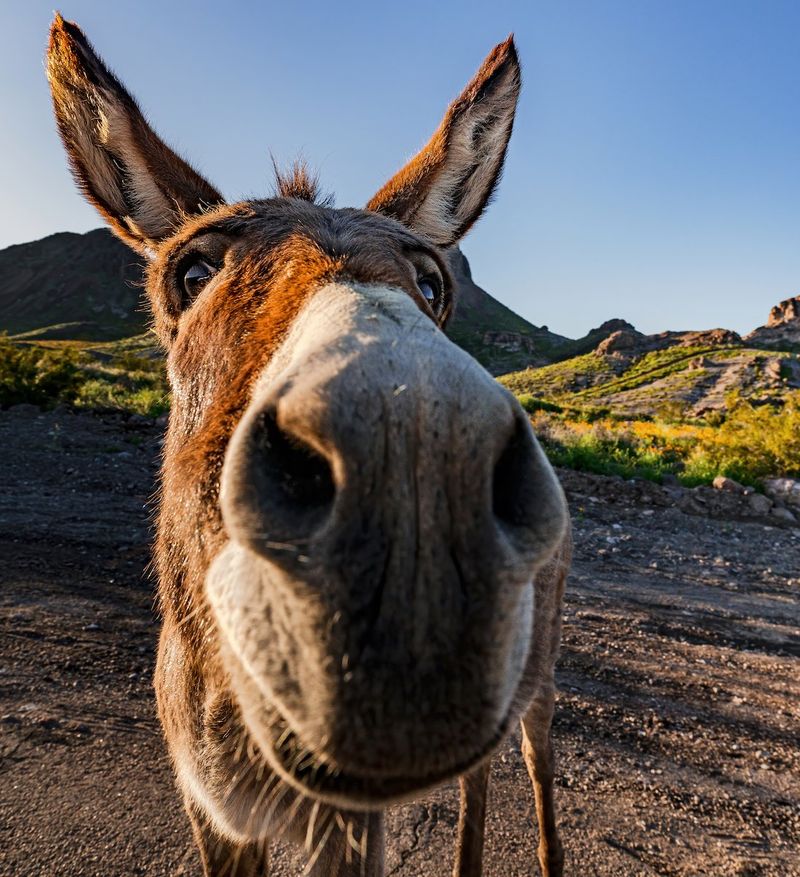
Each wild donkey has its own vocal personality, a unique signature that sets it apart. Their brays and calls are distinct, allowing individual recognition within the herd. This vocal diversity plays a crucial role in social interactions and maintaining group cohesion.
Beyond communication, these vocal personalities add character to each donkey, showcasing their individuality. Listening to a chorus of donkey calls, one can appreciate the rich tapestry of sounds that define their social world. It’s a reminder that within every herd, each donkey has a voice uniquely its own.
Resilient Hooves
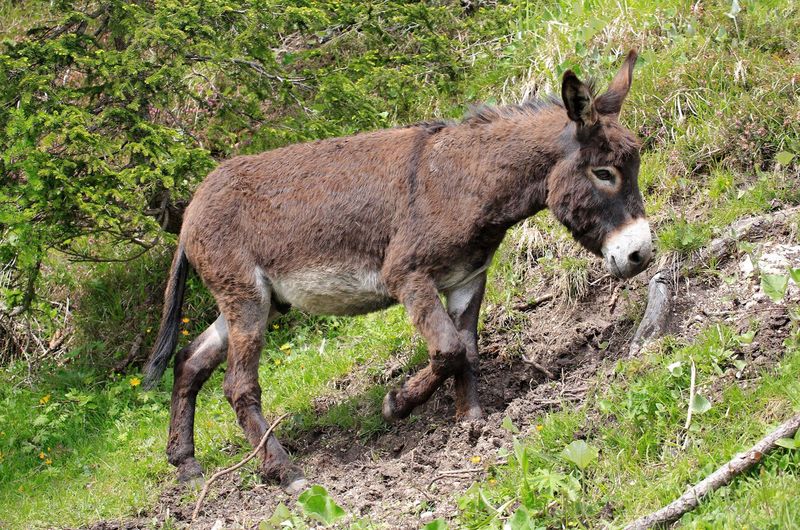
The hooves of a wild donkey are a marvel of nature, designed for resilience and durability. These strong, well-formed hooves enable them to traverse challenging terrains, from rocky paths to sandy deserts.
This adaptation is crucial for their migratory lifestyle, as it allows them to cover vast distances in search of food and water. Their hooves are not just tools for mobility but also symbols of their adaptability. Resilient and reliable, they are a testament to the donkey’s evolutionary success in the wild.
Lifespan Longevity
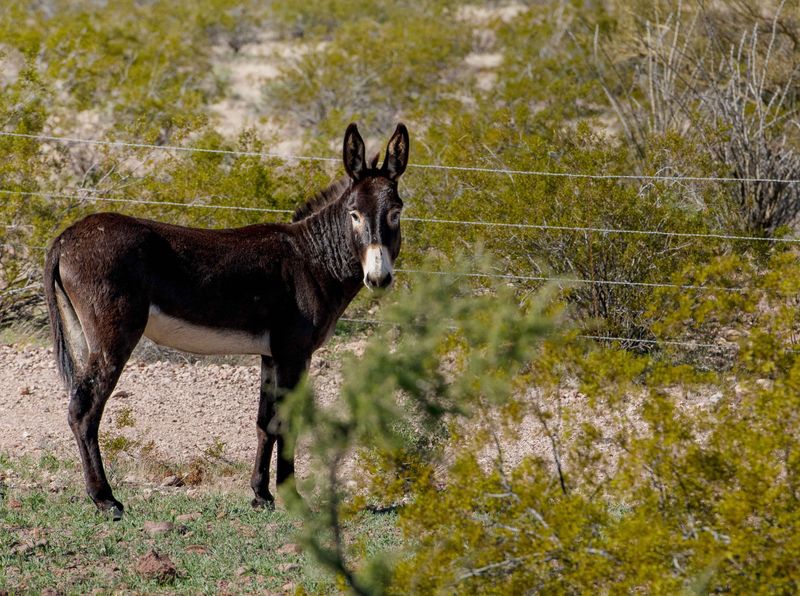
With a lifespan of up to 40 years, wild donkeys are among the longest-lived members of the equine family. This longevity is a testament to their resilience and adaptability.
Their extended lifespan allows them to form deep social bonds and establish complex social structures within their herds. It also means they play long-term roles in their ecosystems, contributing to ecological balance. Observing an aged donkey in the wild is like witnessing the wisdom of nature personified, a living bridge between past and present.
Silent Communicators
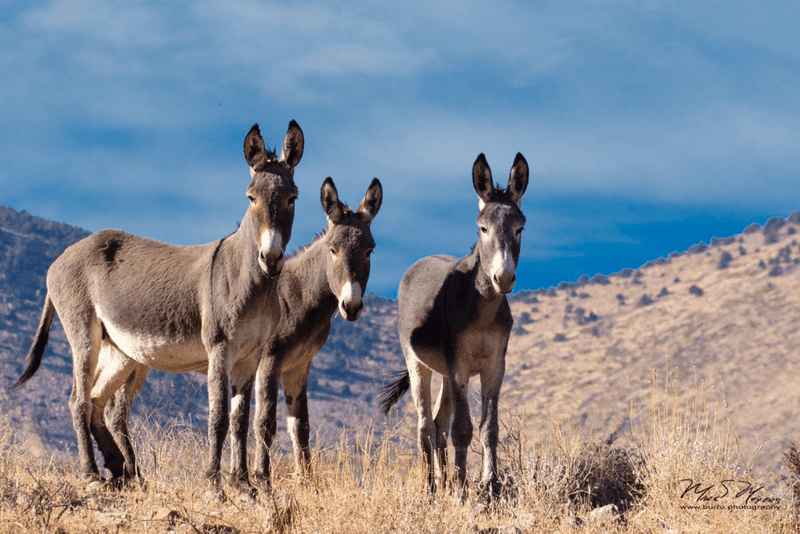
In the quiet landscapes they inhabit, wild donkeys have mastered the art of non-verbal communication. With a flick of an ear or a swish of the tail, they convey complex messages to their fellow donkeys.
Though often solitary, these creatures have developed a subtle language of gestures that transcends words. It’s a dance of understanding, requiring keen observation and intuition.
Silent, yet expressive, these gestures foster connections within the herd, ensuring survival and social harmony in harsh environments. They truly embody the phrase “actions speak louder than words.”

